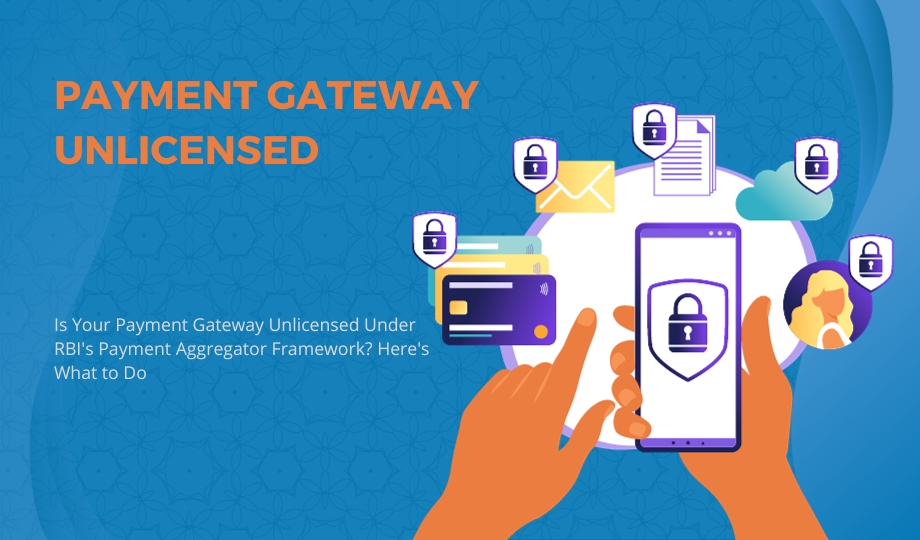In recent headlines, payment aggregators such as Razorpay, Pine Labs, Stripe, and others have been making news for securing their primary payment aggregator licenses from the Reserve Bank of India (RBI). But what exactly is this payment aggregator license, and what should you do if your business relies on a payment gateway that is not authorized under RBI’s payment aggregator license? If these questions have been on your mind, continue reading. This article provides a comprehensive guide to understanding the payment aggregator license, its implications for payment gateways, and the steps to take if your chosen gateway lacks this authorization.
RBI’s Payment Aggregator License: An Overview
The payment aggregator license is essentially a regulatory requirement imposed on all non-banking entities that function as payment aggregators, offering digital payment solutions to merchants. The need for this license arose due to the substantial growth in the popularity of payment aggregators providing digital payment solutions over the past decade. These entities handled transactions worth significant sums, yet they did not adhere to the stringent guidelines set by the Reserve Bank of India, which led to the RBI’s intervention.
To rectify this situation and curb any unregulated activities by payment aggregators—such as those related to crypto payments, online betting, or inadequate merchant verification—the RBI introduced the payment aggregator framework in March 2020. As per this framework, any entity aspiring to operate as a payment aggregator must obtain a payment aggregator license from the RBI.
The RBI started accepting license applications, initially setting a deadline of June 30, 2021, which was later extended to September 30, 2021. During this application period, the RBI received over 180 applications from aspiring payment gateways, aggregators, and established entities such as Zomato, CRED, Reliance, Pine Labs, Stripe, Razorpay, and more. In July 2022, Razor Pay, Pine Labs, 1-Pay, and Stripe secured in-principle approval for their payment aggregator licenses from the RBI, with more approvals anticipated. The RBI is expected to officially announce the names of the first entities approved under this framework in the coming weeks.
The Significance of the Payment Aggregator License for Payment Gateways
For payment gateways, the payment aggregator license is indispensable. It plays a critical role in the continued existence of payment aggregator companies. Entities that acquire the payment aggregator license can offer their services to merchants and operate their businesses without interruption.
On the flip side, entities that fail to obtain the license are required to wind down their operations. Additionally, merchants using unlicensed payment gateways must transition to licensed gateways or aggregators within three months. The impact of this extends beyond the payment entities themselves and affects the merchants associated with them.
Key Requirements for Obtaining a Payment Aggregator License
Companies interested in applying for a payment aggregator license must meet specific criteria, including:
The payment aggregator must be incorporated in accordance with the Companies Act of 2013.
New payment aggregators must have a minimum of Rs. 15 crores while applying, achieve a net worth of Rs. 25 crores within three years of incorporation, and maintain this net worth thereafter.
Existing payment aggregators must have a net worth of Rs. 15 crores by or before March 31, 2021, and Rs. 25 crores by March 31, 2023, with continuous maintenance of this net worth.
Payment aggregators must provide a certificate, prepared by their organization’s chartered accountants, confirming the net worth declared in their application.
New payment aggregators can submit a certificate from their chartered accountants, along with a provisional balance sheet in a prescribed format.
The payment aggregator must have a minimum of two members and three directors.
PCI DSS compliance is mandatory for payment aggregators.
Required documentation includes business address proof, certificate of incorporation issued by the Registrar of Companies (ROC), director signature certificates along with Director Identification Numbers of all directors, company bank account details, a detailed five-year business plan, a code testing certificate from a software agency, and audited balance sheets since the business’s inception.
What to Do as a Customer if Your Payment Gateway Lacks RBI’s Payment Aggregator License?
If your chosen payment gateway is not authorized under RBI’s payment aggregator license, there are several steps you can take as a customer:
Secure Customer Data: Take ownership of your customer data to ensure a smooth transition to a licensed payment gateway without disrupting your business operations.
Switch to a Payment Aggregator Platform: Transitioning to another payment gateway can be time-consuming, expensive, and resource-intensive. A more efficient solution is to switch to a payment aggregator platform like web technology expert.
How web technology expert Can Assist
Web technology expert, as a payment aggregator platform, offers the following advantages:
Seamless Integration: Web technology expert integrates all licensed payment processors and methods into a single platform, simplifying the integration process and minimizing any potential disruptions to your operations.
Effortless Data Migration: With web technology expert, you can swiftly migrate customer data without affecting your business continuity, ensuring a seamless transition to licensed payment processors.
Improved Conversion Rates: Web technology expert supports numerous payment processors, offering customers access to 300+ payment methods, including localized options like Apple Pay, UPI, credit cards, and debit cards. It automatically selects the most successful payment processor in a given region, reducing failed transactions and boosting conversion rates.
Conclusion
RBI’s payment aggregator license aims to regulate all entities engaged in digital payments and ensure compliance with the government’s regulatory framework. However, this should not lead to disruptions in your operations as a customer. To guarantee a smooth transition, consider reaching out to web technology expert. We can help you migrate your customer data and efficiently integrate all licensed payment processors, ensuring uninterrupted operations for your customers.

